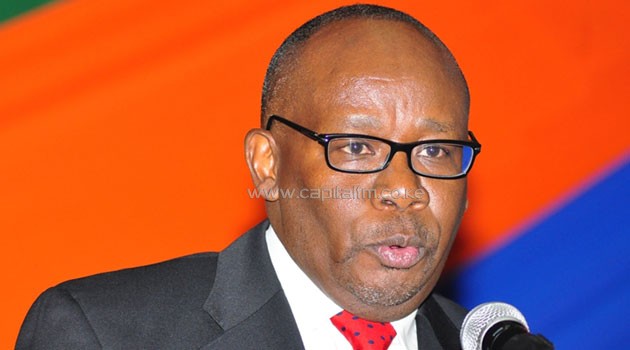NAIROBI, Kenya, May 17 – The Law Society of Kenya (LSK) plans to file a suit to declare Attorney General Githu Muigai, Solicitor General Njee Muturi and the Deputy Solicitor General Muthoni Kimani unfit to hold office, due to what it terms as misconduct in dealing with the Anglo Leasing contracts.
Speaking to journalists on Saturday afternoon, LSK Chairman Eric Mutua said the office of the Attorney General acted unconstitutionally, illegally and unprofessionally in an apparent conspiracy with the Executive.
Mutua said the AG frustrated government lawyers by failing to pay their fees, issue instructions and respond to correspondence despite several reminders.
“Under suspicious circumstances, the Attorney General appears to have withdrawn instructions in December 2013 from the foreign advocates and his office unprocedurally took over the conduct of the case on 20th December 2013. The Solicitor General Njee Muturi represented the country before the London Court without a license to practice in England and Wales. Effectively, the Kenya Government did not have legal representation in the suit and the proceedings are a nullity,” he said.
Mutua also says Muigai did not file notice of appeal which was an avenue available to seek redress.
“The Attorney General gave a misleading legal opinion that the government has no other legal option but to pay the Anglo Leasing contracts while an appeal option was and is still available,” he said.
The LSK also plans to ask them to show cause why a certificate of dishonour by LSK should not be issued to them, as well as striking the Attorney General from the Roll of Senior Counsel. READ: LSK in court to block Anglo Leasing payments.
The society is also petitioning the British Government to investigate the entire proceedings to establish whether there was a conspiracy involving judicial officers there, pointing out that the judge was very casual in dealing with the Kenyan case.
“The judge failed to establish from the Solicitor General whether he was properly on record in the case or whether he had a license to practice in the courts of England and Wales. He also entered judgment against the Government of Kenya based on hearsay and oral presentation without any documentary evidence on the amounts agreed at the mediation,” he said.










































